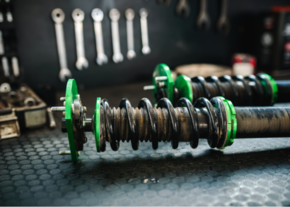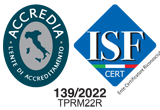
Egea demands approval authorities to act against foul play on ODB port
Massimo Brunamonti
Car repairs as a whole are taking a strong stand on the need for free access to OBD ports. Meanwhile, several car manufacturers are playing an unfair game.
For a long time now, car repairs as a whole have been taking a strong stand on the need for free access to OBD ports. Meanwhile, several car manufacturers are playing unfairly. This is the case of an important manufacturer that has recently introduced a system to restrict and control access on some of its newest vehicles. This system consists in issuing individual codes through a proprietary portal that allows access to its OBD port only through the manufacturer’s official diagnostic equipment, thus cutting off every other multi-brand instrument. The consequence for the sector, if this sort of behaviour spreads, is a significant and unnecessary increase in operating costs, as this would mean having to purchase a whole series of specific official equipment for a job that could easily be done with a single multi-brand instrument.
As far as the independent aftermarket is concerned, this represents a clear violation of current EU regulations. EGEA, the European Association of Garage Equipment Manufacturers, has deemed it appropriate to turn to Osborne & Clarke, a leading law firm specializing in European affairs, for a qualified legal opinion, which fully confirmed what EGEA already thought on the matter, underscoring how the arbitrary imposition of specific requirements, such as access certificates, as well as not providing independent manufacturers of diagnostic equipment the necessary information to produce devices that can operate on their vehicles, constitutes a violation of Regulation 715/2007/EC (called also Euro5 / 6 regulation) as well as the provisions made by Regulation 692/2008/EC; all this translates into a form of discrimination, prohibited by Regulation 566/2011/EU which protects the competitiveness of independent car repairs against official networks and dealerships.
On the basis of such an authoritative opinion, EGEA consulted the European Commission which, in turn, declared that it will inform the competent National Authorities of the matter. Soon after EGEA, on behalf of all independent manufacturers of diagnostic equipment, deemed it appropriate to write directly to these Authorities in several EU countries, and particularly to Italy’s Directorate General of Motorization and to the RDW in the Netherlands, denouncing these facts. Vehicle manufacturers, informed on the matter by EGEA itself, have not yet taken an official position; informal talks, however, lead us to believe that a solution will be soon proposed to correct the situation.
As far as the independent aftermarket is concerned, this represents a clear violation of current EU regulations. EGEA, the European Association of Garage Equipment Manufacturers, has deemed it appropriate to turn to Osborne & Clarke, a leading law firm specializing in European affairs, for a qualified legal opinion, which fully confirmed what EGEA already thought on the matter, underscoring how the arbitrary imposition of specific requirements, such as access certificates, as well as not providing independent manufacturers of diagnostic equipment the necessary information to produce devices that can operate on their vehicles, constitutes a violation of Regulation 715/2007/EC (called also Euro5 / 6 regulation) as well as the provisions made by Regulation 692/2008/EC; all this translates into a form of discrimination, prohibited by Regulation 566/2011/EU which protects the competitiveness of independent car repairs against official networks and dealerships.
On the basis of such an authoritative opinion, EGEA consulted the European Commission which, in turn, declared that it will inform the competent National Authorities of the matter. Soon after EGEA, on behalf of all independent manufacturers of diagnostic equipment, deemed it appropriate to write directly to these Authorities in several EU countries, and particularly to Italy’s Directorate General of Motorization and to the RDW in the Netherlands, denouncing these facts. Vehicle manufacturers, informed on the matter by EGEA itself, have not yet taken an official position; informal talks, however, lead us to believe that a solution will be soon proposed to correct the situation.
On the same topic
#Egea, the biannual assembly sets the guidelines for the future#OBD access electronic certification. How to guarantee safety and free and fair competition in the repair business
























